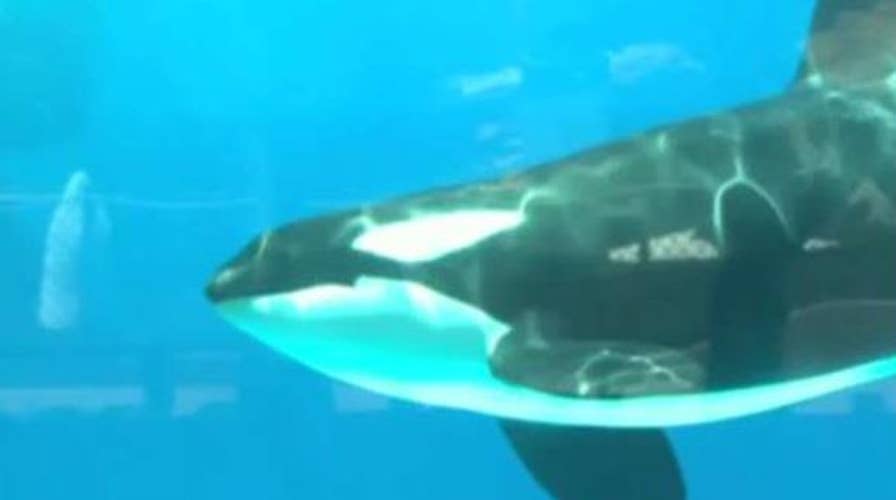SeaWorld announces end to its captive orca breeding program
Killer whale show to be phased out over next three years
SeaWorld will stop breeding killer whales, also known as orcas, in captivity, the theme park company announced Thursday.
In a statement, SeaWorld Entertainment said that the current generation of orcas in its care would not be replaced. The statement added that the company would replace its popular theatrical shows featuring killer whales with "new, inspiring, natural orca encounters ... as part of its ongoing commitment to education, marine science research, and rescue of marine animals."
The company said the shows would be phased out at all three of its parks over the next three years. SeaWorld currently operates in San Diego, San Antonio and Orlando.
"SeaWorld has introduced more than 400 million guests to orcas, and we are proud of our part in contributing to the human understanding of these animals," Joel Manby, President and Chief Executive Officer of SeaWorld Entertainment, said in a statement. "As society's understanding of orcas continues to change, SeaWorld is changing with it."
SeaWorld's treatment of captive killer whales gained national attention as the subject of the 2013 documentary "Blackfish", which argued that killer whales become more aggressive to humans and each other when in captivity. The documentary's focus was Tilikum, who pulled SeaWorld trainer Dawn Brancheau into a pool in 2010, causing the woman's death.
After the documentary's release in 2013, several entertainers pulled out of planned performances at SeaWorld parks amid criticism from animal rights activists, and Southwest Airlines ended its 25-year marketing partnership with the theme park company.
In a statement, "Blackfish" director Gabriela Cowperthwaite called SeaWorld's policy change "a defining moment" of "truly meaningful change."
"SeaWorld's commitment to end breeding of orcas is a long-held goal of many animal advocacy organizations, and we commend the company for making this game-changing commitment," Wayne Pacelle, President and CEO of the Humane Society of the United States said in a statement.










































